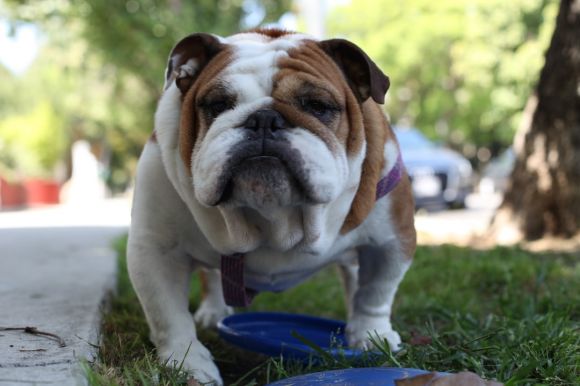English Bulldogs are adorable and gentle companions, but like any other breed, they can suffer from allergies. Allergies in dogs can cause discomfort and distress, and it’s important for owners to be aware of the common allergies in English Bulldogs and how to manage them effectively. In this article, we will explore some of the most common allergies in English Bulldogs and provide useful tips on how to alleviate their symptoms.
Food Allergies: What to Look Out For
Food allergies are quite common in English Bulldogs. They can manifest as skin irritations, digestive issues, or even chronic ear infections. If you suspect that your Bulldog has a food allergy, it’s essential to identify the specific ingredient causing the reaction. The most common food allergens for dogs are beef, chicken, dairy, wheat, and soy. To pinpoint the allergen, you can try an elimination diet, where you gradually introduce different ingredients to your dog’s diet and monitor their response. Alternatively, you can consult with a veterinarian who can conduct allergy tests to identify the specific allergen.
Environmental Allergies: Managing the Triggers
English Bulldogs can also be sensitive to environmental allergens such as pollen, dust mites, or mold. These allergens can cause symptoms like itching, sneezing, and watery eyes. To manage environmental allergies, it’s important to minimize your Bulldog’s exposure to the allergens. Regularly cleaning your home, keeping your Bulldog’s bedding clean, and using air purifiers can help reduce the presence of allergens. Additionally, scheduling regular baths for your Bulldog with a hypoallergenic shampoo can help alleviate their symptoms by removing allergens from their skin and coat.
Flea Allergies: Prevention is Key
Flea allergies are another common issue that English Bulldogs may face. Even a single flea bite can trigger an allergic reaction in some dogs, leading to intense itching and discomfort. Prevention is crucial when it comes to flea allergies. Use flea preventives recommended by your veterinarian to keep fleas at bay. Regularly check your Bulldog’s fur for any signs of fleas or flea dirt, and treat them promptly if necessary. Keeping your home clean and vacuuming regularly can also help prevent flea infestations.
Contact Allergies: Identifying and Avoiding Irritants
Some English Bulldogs may develop contact allergies, which occur when they come into direct contact with certain substances. Common irritants include certain fabrics, cleaning products, or even specific plants. If you notice your Bulldog developing skin irritations or rashes after coming into contact with something, try to identify the culprit and avoid it in the future. Switching to hypoallergenic bedding, using gentle cleaning products, and being cautious about the plants you have in your home and yard can help prevent contact allergies.
Managing Allergies: Veterinary Guidance
If your English Bulldog is experiencing allergies, it’s essential to consult with a veterinarian. They can provide an accurate diagnosis and recommend the most effective treatment options. In some cases, your veterinarian may prescribe antihistamines or topical treatments to alleviate your Bulldog’s symptoms. They may also suggest dietary changes or refer you to a veterinary dermatologist for further evaluation and treatment.
In conclusion, English Bulldogs are prone to various allergies, including food allergies, environmental allergies, flea allergies, and contact allergies. By being vigilant and proactive in managing their allergies, you can help ensure that your Bulldog lives a comfortable and happy life. Remember to consult with a veterinarian for proper diagnosis and guidance on the best course of action. With proper care and attention, you can help your English Bulldog thrive despite their allergies.





